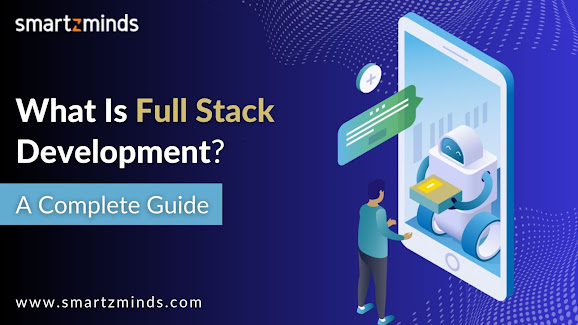What Is Full Stack Development? A Complete Guide
In the fast-paced world of web development, the term "Full Stack Development" has gained significant popularity. As businesses strive to create comprehensive and dynamic web applications, the demand for skilled professionals with expertise in Full Stack Development has surged. If you're intrigued by this buzzword and want to know more, you've come to the right place. In this comprehensive guide, we'll demystify Full Stack Development, explore its importance, and shed light on its relationship with web design.
What is Full Stack Development?
Full Stack Development refers to the process of creating web applications that encompass both the client-side (front-end) and server-side (back-end) components. A Full Stack Developer possesses the skills and knowledge to work on all layers of application development, ensuring a seamless user experience and smooth functionality. This multifaceted approach allows developers to handle the entire project independently, from ideation to deployment.
The Core Elements of Full Stack Development:
Front-end Development: The front-end is the visible part of a website that users interact with directly. It involves designing and developing the user interface (UI) using technologies like HTML, CSS, and JavaScript. A Full Stack Developer proficient in front-end development crafts visually appealing and responsive layouts, enabling a compelling user experience.
Back-end Development: The back-end constitutes the server-side of an application, handling databases, server configuration, and ensuring smooth data processing. Full Stack Developers are skilled in programming languages like Python, Ruby, Java, or PHP, allowing them to create robust, scalable, and secure back-end systems.
Database Management: The database is the backbone of any application, storing and managing data efficiently. Full Stack Developers are well-versed in database technologies like MySQL, MongoDB, or PostgreSQL, enabling them to optimize data storage and retrieval processes.
Server Management: Full Stack Developers have the expertise to configure servers, manage hosting environments, and deploy applications effectively. This skill ensures that the web application runs smoothly and efficiently, minimizing downtime and enhancing performance.
Why is Full Stack Development Important?
Versatility: Full Stack Developers possess a broad skill set, making them versatile assets for any development team. Their ability to handle various aspects of a project streamlines the development process and fosters seamless collaboration among team members.
Cost-Effective: Employing Full Stack Developers can be cost-effective for businesses, especially startups and small enterprises. Having one skilled developer who can handle both front-end and back-end tasks can reduce the need to hire multiple specialists.
Faster Development: Full Stack Developers can independently work on projects, eliminating communication delays and speeding up the development timeline. This agility is particularly advantageous for projects with tight deadlines.
Comprehensive Problem Solvers: Their ability to navigate both front-end and back-end allows Full Stack Developers to identify issues more comprehensively. They can quickly troubleshoot problems and implement effective solutions.
Full Stack Development and Web Design: The Symbiotic Relationship
Web design and Full Stack Development share a symbiotic relationship, complementing each other to create exceptional web applications. While web design focuses on crafting visually captivating and user-friendly interfaces, Full Stack Development ensures the seamless integration of these designs into fully functional web applications.
A strong understanding of web design principles empowers Full Stack Developers to create visually appealing user interfaces that enhance the overall user experience. By combining their design expertise with programming skills, they ensure that the application looks as good as it performs.
On the other hand, web design benefits from Full Stack Development by gaining insights into the technical constraints and possibilities. This awareness enables designers to create designs that are more feasible for implementation, avoiding potential bottlenecks during development.
Collaboration between web designers and Full Stack Developers is essential for successful projects. Effective communication, brainstorming sessions, and mutual respect for each other's expertise foster a harmonious workflow and lead to exceptional results.
In conclusion, Full Stack Development is a powerful approach to web development that encompasses both front-end and back-end skills. Its versatility, cost-effectiveness, and ability to deliver fast, high-quality solutions make it an invaluable asset in the digital landscape. When combined with web design expertise, the possibilities for creating cutting-edge web applications are endless. Whether you're a developer or a designer, embracing the Full Stack approach can elevate your capabilities and open up exciting opportunities in the dynamic world of web development.




Comments
Post a Comment